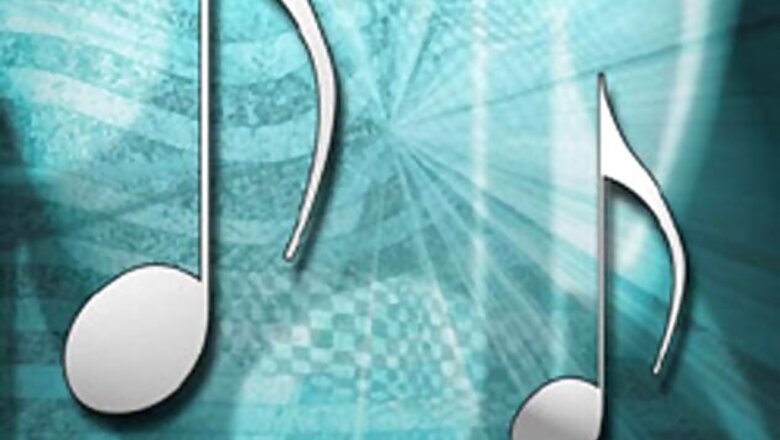
views
Vrindavan (Uttar Pradesh): After years of male domination, the stage is opening up for women to sing dhrupad, a Hindustani classical music genre. In 10 years, the tribe of women dhrupad exponents performing in soirees or as standalone musicians has grown, say brothers Umakant and Ramakant Gundecha, among the country's most popular exponents of the genre. The brothers, in their mid-50s, were in this temple town recently for the Swami Haridas Music and Dance Festival, a 151-year-old event held to remember the teacher of legendary 15th century singer Tansen.
The Dagar gharana (music school) had thrown up many dhrupad 'ustads' (men maestros) but not a single 'ustaadin' (woman maestro) because of the stigma associated with the kothas, or courtesan homes. "For centuries, our music was patronised by the 'kothewallahs' (owners of courtesan homes)," Ramakant said.
But that is changing. Of the 25 students who are studying dhrupad in the ongoing four-year scholastic curriculum at Dhrupad Sanstha, the gurukul run by the Gundechas in Bhopal in Madhya Pradesh, four are women. The brothers say the women at the school are an achievement as they symbolise "the breaching of the male bastion in the dhrupad tradition".
Aleeya Rashid, a star alumnus and the first professional woman dhrupad artiste in Pakistan, is a classic example of a woman overcoming Pakistan's social conservatism and physical disability. Rashid, a visually-impaired woman, born in a poor family in Lahore, grew up listening to songs on the radio. Impressed by her ear for music and mellifluous voice, her family encouraged her to study music. In 2001, she was offered a scholarship to study with the Gundechas in Bhopal. "Aliya left home and all that was familiar to her to take up residence at our gurukul which teaches music in the 'guru-shishya parampara'. In four years, she became an accomplished musician," Ramakant said.
Aliya now teaches at the National College of the Arts in Lahore and last year toured America. Some of the other women students who have trained under the Gundecha Brothers include Amita Sinha Mahapatra from Vishnupur in West Bengal, Shivala, a graduate from the Paris Conservatory, Ashtha Tripathi from Sagar in Madhya Pradesh and Virginia Nicoli, a silver flautist from Italy.
The tradition of women dhrupad vocalists dates back nearly 200 years when princely courts patronised courtesans trained in the vocal genre to perform for private audiences. They usually sang variations of 'khayal', 'thumri' and 'bhajans' (devotional hymns) drawn from the old form of dhrupad, which broke into simpler genres in the 18th century.
After the princely states were abolished, many court musicians like Gauhar Jaan found private sponsors -- in kothas -- or went on to do playback singing for films. They were also the early generation of gramophone artistes as well, taking their classical music to the masses without being seen.
However, a later tribe of musicians like Begum Akhtar, Gangubai Hangal and Siddheshwari Devi became icons, breaking through the stigmas attached to women musicians of their times. But their numbers remained sporadic and almost disappeared in the decades after Independence, the brothers said.
"There is not much of a difference between a male and female dhrupad musician. However, Ustad Zakriuddin Khan (a dhrupad exponent) ate 2.5 gm of clarified butter every day to make his voice powerful. A woman cannot possibly eat butter to boom like a man. She can enrich music with her beauty and refinement," Ramakant said.
The brothers say their gurukul does not award degrees but offers a rigorous training programme. "The students lead a simple life and after four years become accomplished dhrupad musicians. Their backgrounds do not matter as long as they have a flair for music," Umakant said.
After Bhopal, the brothers have now opened another gurukul in Bangalore.



















Comments
0 comment